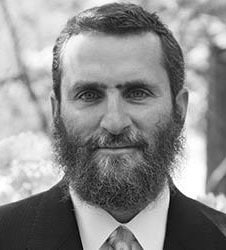In the summer of 2008 I received a phone call from the Obama campaign asking me to serve as national co-chair of Rabbis for Obama. What prompted the call? First, an article I had written praising the senator for using his name Barack — which he said his father had told him means blessing in Hebrew — rather than the more generic Barry. I mentioned that the Jewish community, which so often Anglicizes its names, could take inspiration from Obama and be prouder of its identity. Another consideration might have been my close friendship with Cory Booker and the fact that, at the time, I was hosting a daily radio show on the Oprah and Friends radio network, and Oprah was obviously quite close with Obama.
Whatever the reason for the phone call, I told them I was flattered but could not accept. There were two principal reasons. First, I had serious reservations about Obama vis-a-vis Israel.
But the second reason was more fundamental. I found the whole idea of Rabbis for Obama, or even Rabbis for McCain, which the Republicans never formed, to be inherently distasteful.
How could a rabbi now running for congress as a Republican say that? I’m not running for office on a platform that says Judaism supports Republicans. Less so am I running on a platform that says Judaism’s spiritual teachers are Republicans. On the contrary, Judaism supports democracy rather any one particular party. Indeed, the halachic Jewish legal process is itself profoundly democratic. “Acharei rabim lehatos,” we follow the majority opinion, Scripture emphatically declares. Judaism supports different parties offering different visions as part of the full panoply of the democratic process. I am a Republican, but here in my community of Englewood, N.J., is Rabbi Menachem Genack, national administrator for the kashrut division of the Orthodox Union and regarded globally as an outstanding scholar, who is a Democrat and is famous as Bill Clinton’s personal rabbi.
There are indeed Jewish values that would, in my opinion, better follow the Republican line on some things, and there are Jewish positions that might be closer to what the Democrats are advocating.
In the second world war many in the Republican party were profoundly isolationist, wanting America to stay far away from Hitler’s European war. It was Democrats, at the time, through the great personality of Franklin Roosevelt, who wanted to support Churchill and Britain and started lend-lease as a way of getting the ball rolling. In that time, the Republican position directly contradicted Leviticus 19: “Thou shalt not stand by the blood of your neighbor.” Likewise, it is my opinion that when President Clinton did not lift a finger to stop the genocide in Rwanda, and when Democrats largely opposed the removal of Saddam Hussein under a Republican president, they were in the wrong as they would have left in power the greatest murderer of Arab life in the history of the world.
But these are just demonstrations on my part of how different parties can more closely align, on certain issues, with Jewish teachings and values at any given time. What Judaism expressly does not do is say “Vote Democrat” or “Vote Republican.” Judaism hovers above the political fray, informing and influencing the political arena from a loftier perch. And rabbis who are heads of communities, nearly all of whom consist of both Democrats and Republicans, are misguided when they collectively join organizations that state that Judaism’s spiritual leaders, in general, are for any one particular party.
It’s one thing to do so as individuals. Even rabbis are allowed to have political opinions and preferences. But once we go in the direction of Rabbis for Obama, we’re saying Judaism as a religion supports one party over the other.
I have no problem with the Republican Jewish Coalition, which I admire and to which I am quite close, or the National Jewish Democratic Council. It’s good to see that Jews are politically engaged and involved on both sides of the aisle, as they should be. But rabbis claim to speak for a community, and to burden their communities in their capacities as religious leaders with their own political opinions is misguided.
Thus, even as I run for office, were I to be invited to join Rabbis for Romney (which, I might add, at least has the alliteration that Rabbis for Obama does not) I would decline. I run an intimate shul that is filled with Democrats and some Republicans — indeed for most of my life, my closest friends, colleagues, associates and congregants have been, for the most part, very liberal and very Democratic. This was especially true when I was rabbi at the University of Oxford and working in the American media where most, it would seem, are Democrat. We get along and love each other — because I respect their opinion and they respect mine, as it should be.
But while I object to Rabbis for Obama or Rabbis for Romney, I could see myself bending the rules a bit if it were Rabbis for Shmuley.
Rabbi Shmuley Boteach, who has just published “Kosher Jesus,” is the Republican nominee for New Jersey’s Ninth Congressional District. In October, he will publish a book on the nature of human suffering, “The Fed-Up Man of Faith.” His Web site is shmuleyforcongress.com. Follow him on Twitter @RabbiShmuley.






















 More news and opinions than at a Shabbat dinner, right in your inbox.
More news and opinions than at a Shabbat dinner, right in your inbox.